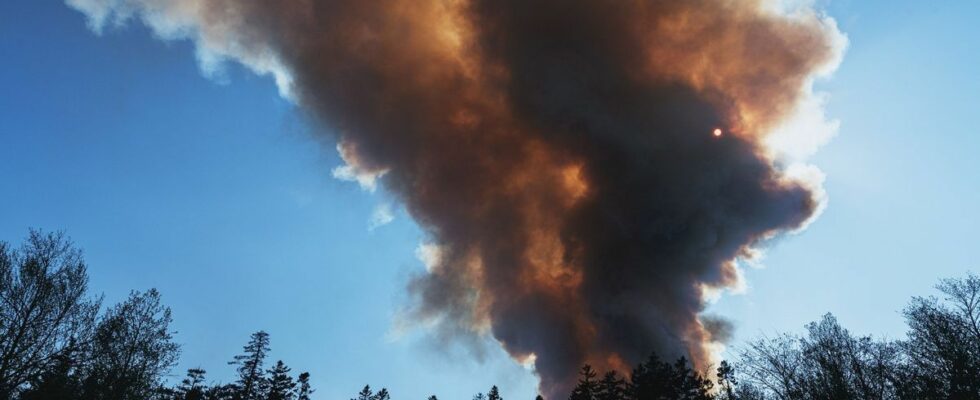Published on
Updated
Reading 3 min.
As California and Canada are currently ravaged by extreme wildfires, and vigilance is required in several French departments, a major study is looking at the impact of smoke from these fires on brain health. Which could significantly increase the risk of dementia, more than all other forms of air pollution.
Beyond their disastrous consequences on the environment, particularly in terms of air, water and soil pollution, forest fires are also harmful to the health of populations. Inhaling the smoke emitted by these fires, consisting of suspended particles, carbon monoxide and other chemical substances, can in particular cause respiratory and cardiovascular symptoms, as recalled National Agency for Food, Environmental and Occupational Health Safety (Anses) in 2023. But the smoke from forest fires could also be harmful to brain health, as a new American study suggests.
Fires, major sources of fine particles
“Previous research has shown that exposure to fine particles is associated with dementia, but our large, long-term study suggests that the risk from wildfire smoke exposure is even more concerning. Air pollution from wildfires now accounts for more than 70 percent of total fine particle exposure on poor air quality days in California. This is a real problem.“, warns Holly Elser, a neurology resident at the Hospital of the University of Pennsylvania (HUP) in Philadelphia and lead author of the research, in a press release.
Presented as part of Alzheimer’s Association International Conference (AAIC), which runs through August 1 in Philadelphia, the 10-year study (2009-1019) is based on the analysis of medical records of more than 1.2 million Southern Californians aged 60 and older. For their research, the study authors used air quality monitoring data, satellite imagery, and other techniques designed to separate fine particles from wildfires from those generated by other sources such as cars or factories. The researchers then assessed each participant’s exposure to these sources of fine particles based on their place of residence, and compared this data to any diagnoses of dementia in their medical records.
“A threat to brain health”
The verdict is clear since the study suggests a significant risk of dementia diagnosis in people exposed to wildfire smoke, more than when they are exposed to other forms of air pollution. In more detail, this work reports a 21% increase in the risk of dementia diagnosis for each increase of one microgram per cubic meter of concentration of fine particles generated by wildfires over three years of exposure on average. A rate much higher than for other sources of fine particles, namely an increased risk of dementia diagnosis of 3% for each increase of three micrograms of concentration of fine particles per cubic meter.
“With the global incidence of wildfires increasing, including in California and the western United States, exposure to this type of air pollution poses a growing threat to brain health.“, comments Claire Sexton, director of scientific programs and awareness at the Alzheimer’s Association. She adds: “These results highlight the importance of adopting forest fire prevention policies and seeking better methods to deal with them.“.
According to the researchers, fine particles generated by wildfires may be more harmful to brain health because of their higher concentration of toxic chemicals, their smaller diameter compared to other fine particles, and the higher temperatures at which they are produced. To reduce their exposure to these particles, affected populations are encouraged to check and change their air filtration systems if necessary, and to stay indoors or wear a suitable mask in case of poor air quality.
This is not the first study of its kind to establish a link between wildfire smoke and brain health. In August 2023, researchers from the University of New Mexico’s Health Sciences suggested that inhaling these fumes could be responsible for inflammation of the brain with an increased risk of neurocognitive and mood disorders. A study conducted by American scientists, meanwhile, reported a relationship between exposure to wildfires and anxiety disorders, another of the health consequences of these increasingly frequent fires.
